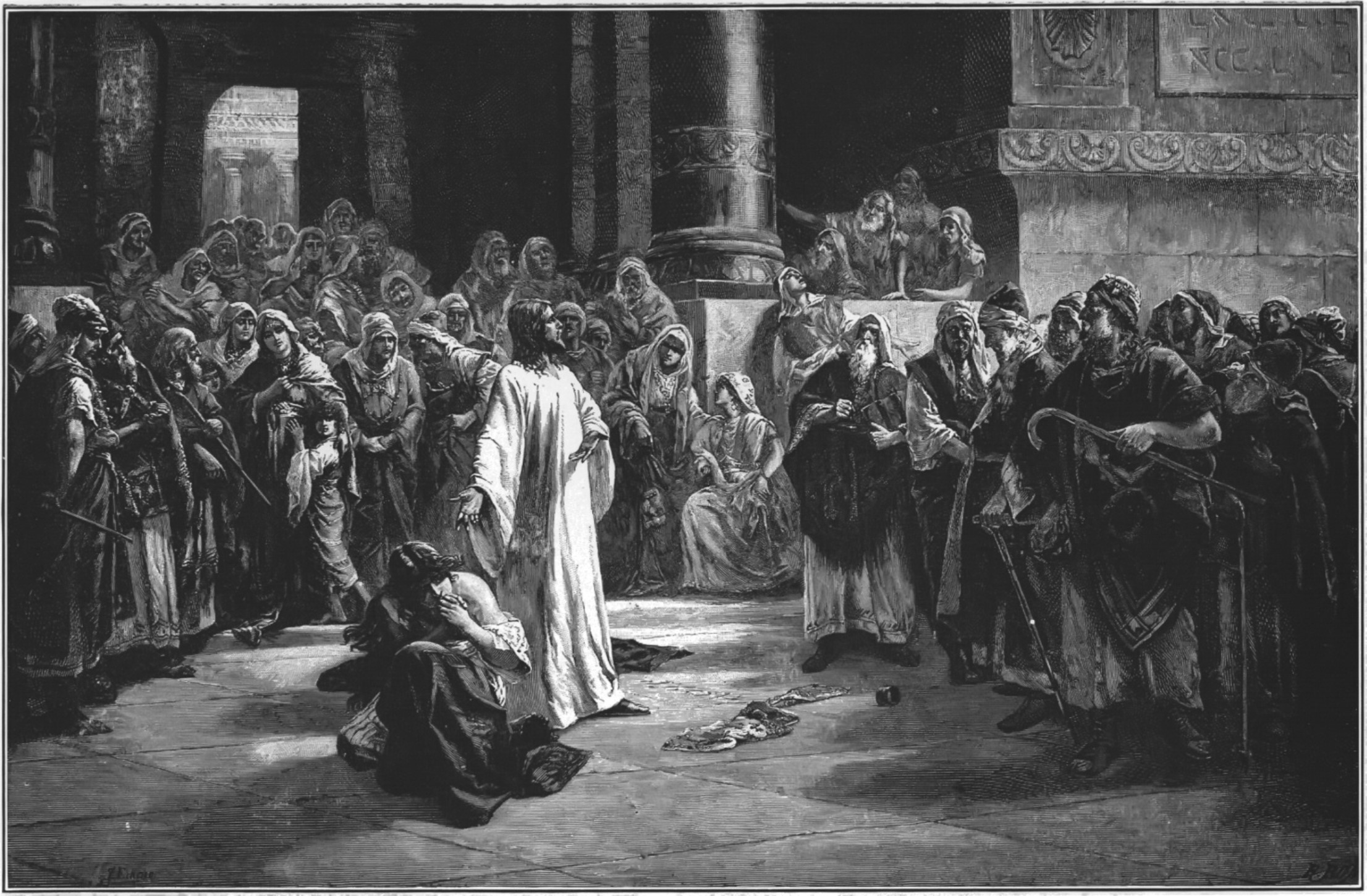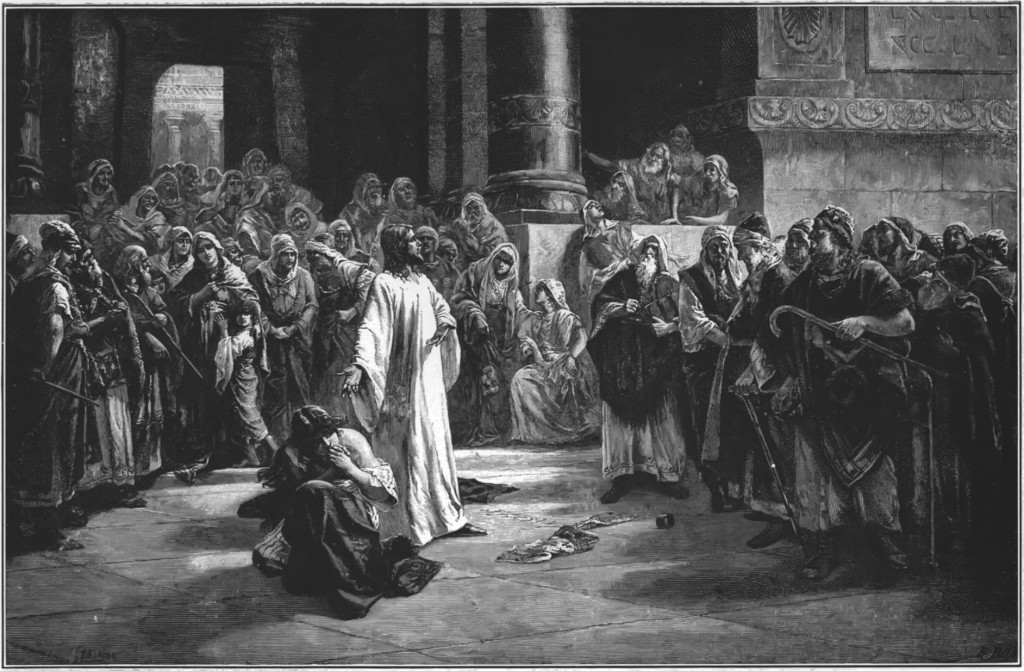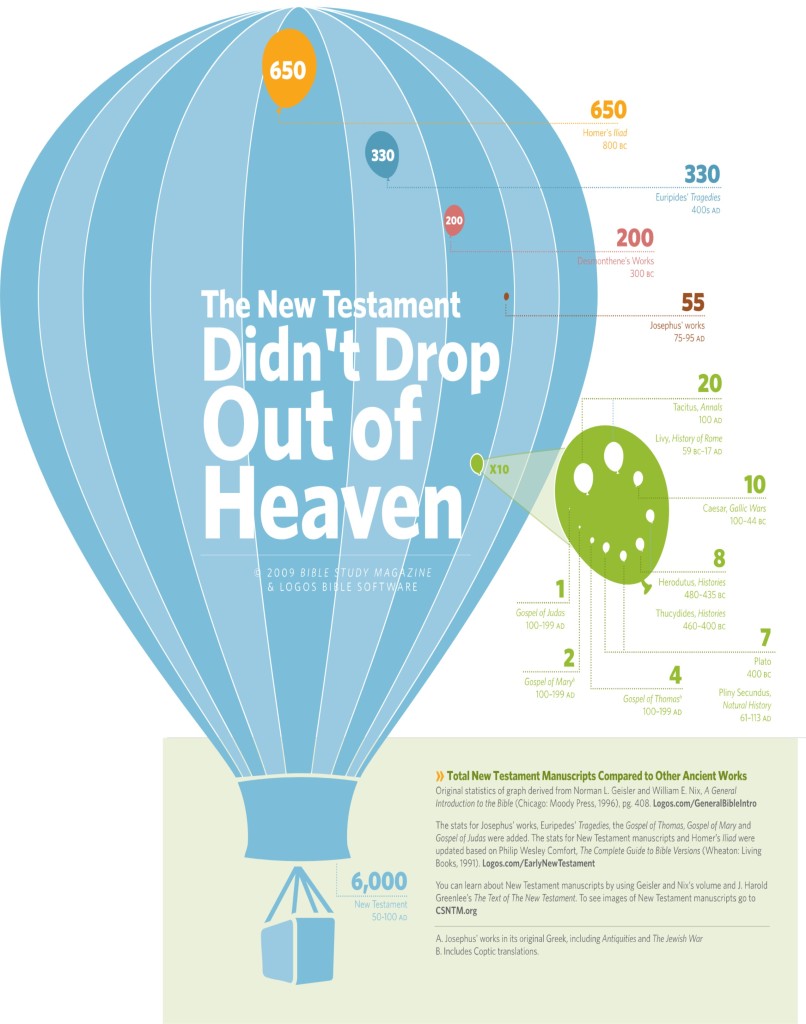“Don’t judge me!”
“Christian’s aren’t supposed to judge!”
“Judge not, lest ye be judged!”
Do any of these sound familiar? The above sayings are a few common examples of all-too-often used statements from people who either reject the entirety of the Christian faith, or some of it’s key tenets. Just look at any public discussion – specifically online – where Christianity comes up, and such statements run rampant. But are these sayings accurate? Does Christianity, specifically Jesus himself teach that we aren’t to judge one another?
The truth is, everybody want’s Jesus on their side. We live in an age where the majority of the population is Biblically illiterate, and rather than investigate what they hear for themselves they trust the first thing they hear that already agrees with their beliefs. Those who hold to the belief that Jesus’ followers aren’t to judge anyone will often reference either John 8:7 (“Let him who is without sin among you be the first to throw a stone at her.”), or Matthew 7:1 (“Judge not, that you be not judged.”). From a plain reading, one might conclude that Jesus did in fact teach that his followers are not to make any judgment whatsoever. The Bible has a lot to say about judging one another – but since even non-Christians like to quote Jesus to make their point, let us look specifically at these verses in their appropriate contexts to see what Jesus really had to say about judging people.
The Terms
Before we continue, we need to define what it means to even judge someone or something. The classical view of “judgment”, that is the one that exists in the dictionaries and was the understanding in society up until the post-modern era, says this:
- to form an opinion about through careful weighing of evidence and testing of premises
- to determine or pronounce after inquiry and deliberation
- to hold as an opinion
- to form an opinion
Inc Merriam-Webster, Merriam-Webster’s Collegiate Dictionary., Eleventh ed. (Springfield, MA: Merriam-Webster, Inc., 2003).
By classical standards, to judge someone or something merely means to form an opinion about the object or person in question. Only in our post-modern context does this word carry a negative tone to it – where casting judgment is wrong if it offends someone, or disagrees with something they do or say. We like judgment when it makes us feel good – if we do well on something and we get complimented, we love judgment! However, when people don’t think we did something right or disagree with our actions, all of a sudden we hate judgment and we start yelling at people.
For the remainder of this article, I will be using the classical definition of judgment.
John 8
Let us dive deeper into the passage from John 8. The first key to examining any verse in the Bible is in what context does it fall. I can take any verse out of the Bible and make it say anything I want, the question is – is that what the verse meant in it’s original context?
Starting in verse 1 of chapter 8, Jesus is on his way to the temple. As he was teaching there, the scribes and the Pharisees (the legalistic teachers of the law who were always trying to undermine Jesus and eventually got him placed on the cross) bring a woman to him who was caught in adultery. In verse 4 they say to him “Teacher, this woman has been caught in the act of adultery. Now in the Law Moses commanded us to stone such women. So what do you say?”
I can only imagine the tension of this encounter. Every time the Pharisees encounter Jesus, they try to catch him in a trap and get him to contradict the law of Moses. It always amazes me to see how Jesus responds, truly showing the ignorance of us petty humans and how we always try to take control of everything. In verse 6, Jesus bends down and began to write with his finger in the ground (Nobody knows for sure what he wrote, as the passage does not say. For you Bible nerds out there, check out Jeremiah 17:13 for a pretty strong connection to say that Jesus may have been writing their names in the sand). As the Pharisees and scribes continue to speak, Jesus responds with the classic go-to line “Let him who is without sin among you be the first to throw a stone at her.”
John’s gospel goes on to say that when they heard what Jesus said, they began to walk away one by one. Left with merely the woman before him, this encounter concludes with Jesus telling the woman “Neither do I condemn you; go, and from now on sin no more.”
Before we draw conclusions from what this passage means, let’s examine the passage from Matthew as well. With both stories in view, our conclusions will make much more sense.
Matthew 7
This passage in Matthew begins with our verse in question right away. Starting in verse 1, “Judge not, that you be not judged…” As we said above, it is absolutely imperative that we take this verse in context and read what the rest of the passage has to say. I will put the remainder of the passage below:
2 For with the judgment you pronounce you will be judged, and with the measure you use it will be measured to you. 3 Why do you see the speck that is in your brother’s eye, but do not notice the log that is in your own eye? 4 Or how can you say to your brother, ‘Let me take the speck out of your eye,’ when there is the log in your own eye? 5 You hypocrite, first take the log out of your own eye, and then you will see clearly to take the speck out of your brother’s eye.
The Holy Bible: English Standard Version (Wheaton: Standard Bible Society, 2001), Mt 7:2–5.
Let’s skip to verse 3, and work our way back to verse 2. Verses 3-4 use a speck/log analogy; what Jesus is saying here is that we should not seek to judge a sin in someones life if we struggle with that sin ourselves. As an example, it would be wrong for me to tell my friend to stop lusting after women if I have a deep pornography addiction. Another example would be if I stored up all of my money for myself and gave none of it away to charity and the church, and then told someone else that they weren’t using their money wisely. I would be telling someone to remove the speck from their eye while I had a giant log in mine. Verse 5 tells us that it is hypocritical judgment that Jesus is speaking about. In fact, verse 5 actually tells us to wage war on and confess our own sin before we try to tell someone else they have a similar problem. Finally moving back to verse 2, we see that Jesus is talking about hypocritical, unrighteous judgment. It is the level of unrighteous, undue judgment that we place on another that God himself will judge us.
Conclusions
We could look at a number of passages from the gospels and see what Jesus has to say about judging others (and I could write 5 more posts about what the rest of the Bible has to say about judging others). In numerous passages, such as Matthew 18:15-20 or John 7:24 righteous judgment is actually encouraged. It is through the lens of others that our sins are often made known, and this is the way God has set up his church. It is necessary for us to surround ourselves in a community of other Christians, as we are to admonish and exhort one another daily to follow after Christ. This is to be done in love, as we confess our sins to one another and pursue holiness.
For brevity’s sake, let’s analyze Matthew 7 and John 8 together now that we’ve examined them in context. Once fully understood, it is impossible to conclude that Jesus is saying not to cast any opinion or judgment on another. What Jesus condones is hypocritical, blinded judgment where we point fingers at others while inside we are completely muddy sinners. In John 8, Jesus himself judges the adulterous woman by telling her to “go and sin no more”. That is, do not continue to make a habit of your old sinful ways, but now live a life pursuing holiness.
In John 8 we also get the beautiful picture of the gospel: “I do not condemn you”. Oh, how sweet the words! As incredibly jacked up human beings who break God’s laws daily, we all deserve consequence and condemnation for our sin yet because of the cross there is none for those who are in Christ. How deep the fathers love for us! When we see such love, how can we do anything but respond to the call to go and put our sin to death?
Through all of this, my exhortation to the Christian is this: please do a deep and thorough heart examination before you go and point out the sin of others. Our actions, when they reek of hypocrisy, are laughable to those whom we try to live as an example to. These words aren’t just for you, they’re for myself.
Humility is a tricky subject. To say that we’ve ever arrived at being humble would in fact just be pride in ourselves. To try and teach how to become humble without coming off as prideful is an incredibly difficult task. I have no solutions – every day I pray for God to grant me grace and humility towards others, and every day it continues to be a struggle. I think this will always be a thorn for me, as pride and arrogance were a huge problem for me prior to becoming a Christian. Even today, the very doctrines that should humble me – that Christ came into the world to save the worst of sinners like me – creates puffed up conceit and pride over being able to dominate others in discussion. I’ve heard it said that seminaries are often a breeding ground for pride, as we can often tend to academize the faith throughout our studies. Even while I do my basic exercises or readings, I have to consistently stop and pray and remind myself why I am doing these studies.
The Scriptures explicitly warn against teachers who are prideful, arrogant, conceited and think too highly of themselves. Even worse, they teach that such people are not qualified for leadership. I often fear that due to this depravity in my nature I will never be able to lead as I should. My only comfort has been consistently to pray through the following prayer and passage from Philippians 2:1-11. I thank God that he has exposed this pride within me, and now I only know how to continue to ask him to take it from me.
Mighty God,
I humble myself for faculties misused, opportunities neglected, words ill-advised, I repent of my folly and inconsiderate ways, my broken resolutions, untrue service, my backsliding steps, my vain thoughts.
O bury my sins in the ocean of Jesus’ blood and let no evil result from my fretful temper, unseemly behaviour, provoking pettiness.
If by unkindness I have wounded or hurt another, do thou pour in the balm of heavenly consolation; If I have turned coldly from need, misery, grief, do not in just anger forsake me: If I have withheld relief from penury and pain, do not withhold thy gracious bounty from me.
If I have shunned those who have offended me, keep open the door of thy heart to my need.
Fill me with an over-flowing ocean of compassion, the reign of love my motive, the law of love my rule.
O thou God of all grace, make me more thankful, more humble; Inspire me with a deep sense of my unworthiness arising from the depravity of my nature, my omitted duties, my unimproved advantages, thy commands violated by me.
With all my calls to gratitude and joy may I remember that I have reason for sorrow and humiliation;
O give me repentance unto life;
Cement my oneness with my blessed Lord, that faith may adhere to him more immovably, that love may entwine itself round him more tightly, that his Spirit may pervade every fibre of my being.
Then send me out to make him known to my fellow-men.
-Valley of Vision, “Humility in Service”
So if there is any encouragement in Christ, any comfort from love, any participation in the Spirit, any affection and sympathy, complete my joy by being of the same mind, having the same love, being in full accord and of one mind. Do nothing from selfish ambition or conceit, but in humility count others more significant than yourselves. Let each of you look not only to his own interests, but also to the interests of others. Have this mind among yourselves, which is yours in Christ Jesus, who, though he was in the form of God, did not count equality with God a thing to be grasped, but emptied himself, by taking the form of a servant, being born in the likeness of men. And being found in human form, he humbled himself by becoming obedient to the point of death, even death on a cross. Therefore God has highly exalted him and bestowed on him the name that is above every name, 10 so that at the name of Jesus every knee should bow, in heaven and on earth and under the earth, and every tongue confess that Jesus Christ is Lord, to the glory of God the Father.
-Philippians 2:1-11, ESV
As promised, the second entry in a short series about the original languages. For the first entry, see here.
In this entry I’m going to examine a few simple examples for how the original languages can be used to defend the accuracy of the Biblical text. My goal in this entry is to show that with a moderate understanding of the languages, leaders can appropriately keep watch over the flock – and without them, they are inviting false teachers to prey on their church.
As a note, I’d like to remind the reader in a similar fashion to my first post. In no way am I elevating myself as an expert or more learned than most, my only attempt is to humbly suggest the importance of the knowledge of languages, as well as provide answers to my dear friends who have asked me questions about the languages.
Scenario #1: Suzy and the White-Shirted Door Knockers
So you’re a leader of a church. Sunday rolls around, and in walks Suzy and her three children. She calmly walks by the greeters at the door – not looking them in the eye as to avoid attracting attention. She makes a straight line right for you prior to service and says she really needs to talk to you. The conversation goes something like this:
Suzy: All this time you’ve been lying to us. The Bible does not say Jesus is THE God, it says he is just A God. It’s clear from the original text.
You: I see you are troubled, Suzy. Where did you come across this information?
Suzy: We had some visitors this weekend. The Jehovah’s Witnesses came to our house and showed us what the original text in John 1 says. We’ve decided we will be leaving your church to go to their Kingdom Hall down the street.
So, where do we take this conversation from here? One option would be to tell her that’s not how the Bible reads, and it is not how the church has understood it for centuries. However, Suzy feels that she now possesses superior information. Unless you can show her that she doesn’t, she is likely to view that response as narrow-minded and grasping onto tradition rather than the truth.
This example of our neighbors in Mormon and Jehovah’s Witnesses group is actually quite common. In fact, it is likely this will be one of their opening claims should you entertain them when they knock on your door (David Reed has great information on this in this book). Their basis for this claim is that John 1:1 does not contain what is called the definite article before “God”. In English, our definite article is “the”. So, when we say “the boat” we are referring to an actual, singular, definitive boat. In the statement “Johnny walked down to the boat”, the author of this statement would be referring to a specific boat. If the author wanted only to refer to a generic, non-specific boat it would instead be written “Johnny walked down to a boat”. Here is what we find in John 1:1 :
“Ἐν ἀρχῇ ἦν ὁ λόγος, καὶ ὁ λόγος ἦν πρὸς τὸν θεόν, καὶ θεὸς ἦν ὁ λόγος“
The bold segment at the end is the statement in question. The Jehovah’s Witnesses and Mormon’s would claim that we should see the definite article before θεὸς (God), which would read “ὁ θεὸς”. However – this is where our knowledge of the Greek language comes into play. What we see here is an example of what is known as “Colwell’s Canon”. E. C. Colwell completed his research in about 1931, which is where we get this rule. The rule states that nouns prior to the “to be” verb in Greek (here seen as ἦν) will often lack the article and still be definite (Wallace, Greek Grammer Beyond the Basics, 257). Examples of this also occur in John 1: 49, John 8:42, John 19:21, Matthew 27:54 and approximately 250 other times throughout the New Testament.
My suggestion would be that there should be leaders in a church who can properly address a concern like Suzy’s. I’ve heard it said that something like this doesn’t happen very often, so we shouldn’t be that worried about it. Even if it had only happened once in the history of the church, isn’t that enough reason to be prepared for this kind of deception?
Scenario #2: Frankie Freshman and the Know-It-All Professor
It’s late May, and all of the young college students are returning from school to live at home and work their summer jobs as a waiter at the local Ruby Tuesdays. Frankie has returned from his first year in college, and spent the whole year taking his Gen-Ed courses. He tells you of his bow-tie wearing, sport-coat toting young history professor who was able to tell him that nowhere in the four Gospel books does Jesus make an exclusive claim about himself. In fact, in John 14:6 Jesus actually just says “I am a way, a truth and a life”. Combined with all of his new post-modern friends he met, Frankie tells you that he won’t be attending church anymore. The New Testament is a sham, and anyone who believes what the Bible says is clearly uneducated.
Again, this is a simple example but is found all too often – especially in an age where young men and women are easily enamored by what appears to be a new school of thought they’ve never heard before. Just like scenario #1, it is so immensely important that leaders are prepared to address these types of comments. The sad reality is, our young people will follow whoever appears to have more significant knowledge.
In this scenario, I believe it important for our church leaders to be able to show the kind of humble love and understanding someone like Frankie needs, but also be able to show that they are knowledgeable and well-studied, able to defend against these sorts of grievous errors. In a loving way, it should be easy for a leader to walk Frankie through John 14:6, not only showing him the definite article (Eγώ εἰμι ἡ ὁδὸς καὶ ἡ ἀλήθεια καὶ ἡ ζωή) – but also a series of the original manuscripts the book of John comes from.
Scenario #3: “That isn’t in the original Greek.”
It is very easy for myths and rumors to get started. All it takes is the slight twisting of a truth, something that sounds right to the untrained ear, and it takes off like a rocket. In the church, all it takes is one adamant, charismatic false teacher and a whole congregation becomes grossly misinformed. This happens in the form of people telling you something in the English translation doesn’t exist in the original Greek. To fit their deceitful doctrines, false teachers will often make such statements to fit their agenda.
Scenario #4: Charlie Charismatic and the Case of the Missing Implications
The Koine Greek language, like any other, is full of many grammatical rules and constructions that must be learned in order to understand the language. Simply knowing vocabulary and verb paradigms might aid you in getting a translation, but understanding why the text is written the way it is written is incredibly important. One of these rules is the usage of the negative word ‘μὴ’ in a question. μὴ is often easily just translated “not”, or might negate a noun such as “you are not brothers”. In the Koine Greek language, when μὴ is used in a question, it indicates a rhetorical question with an expected negative answer.
In 1 Corinthians 12:29-30, the Apostle Paul says “Are all apostles? Are all prophets? Are all teachers? Do all work miracles? Do all possess gifts of healing? Do all speak with tongues? Do all interpret?” It could be easy for someone like Charlie the overly Charismatic to try and say something like “See! Paul is basically saying don’t all possess these gifts? Clearly we can all have them if we have the faith for it.”
However, with an analysis of the sentence construction we would find the following:
μὴ πάντες ἀπόστολοι; μὴ πάντες προφῆται; μὴ πάντες διδάσκαλοι; μὴ πάντες δυνάμεις; μὴ πάντες χαρίσματα ἔχουσιν ἰαμάτων; μὴ πάντες γλώσσαις λαλοῦσιν; μὴ πάντες διερμηνεύουσιν;
Context could clearly show this, but if Charlie doesn’t listen the original text shows that each question expects a negative response. No, we don’t all possess them – but we are to desire them.
Scenario #5: Common Myths to Bible Translation
I don’t have space to go into myths about Bible translation but Dan Wallace has an excellent list here. It is well worth the read.
—–
This was a lengthy article I know, but I hope many of you found it informative and saw how the original languages can be used to defend against error and deceit in today’s culture.
The next post will be on the importance of the original languages as it pertains to understanding the nuances and deeper meaning behind the text.
Today I had the pleasure of attending the first day of the Gospel Coalition 2013 pre-conference on global missions. This is my first Christian conference of any kind, and I am overwhelmed with the presence of Godly men and women gathered under the name of Christ to praise and grow in our wisdom and knowledge of him.
As the first sentence suggests, the pre-conference is all about our summon and call to global missions as Christians; to bring the gospel to the ends of the Earth as we are commanded by Christ at the end of each Gospel account, most notably Matthew 28:18-20 (The Great Commission).
We heard from three speakers today, DA Carson, Andy Davis, and David Platt. I will briefly highlight some points from each speaker.
DA Carson
Carson preached from 2 Corinthians 4:1-10. The three points he wanted us to take away from this text were:
- Gospel mission demands unqualified integrity.
- The gospel itself is the glory of Christ.
- Gospel ministry is categorized by paradoxical dying to self and life in Christ.
One of my favorite comments by Carson was on verse 6, “For God, who said, “Let light shine out of darkness,” has shone in our hearts to give the light of the knowledge of the glory of God in the face of Jesus Christ.” In regards to this verse, he said “My confidence is not that everyone will be impressed by my knowledge and wisdom, but that again and again God will say ‘Let there be light’ in the hearts of those to whom we preach.”
I also really loved his comment on the question of “Why can’t there be more than one way to God?” In his response, he said that no one has ever asked that question with greater intensity than Jesus himself. As He prayed in the Garden of Gethsemane, sweating drops of blood, Christ pleaded “Can there be no other way!?” The Father said no. There can only be one way – that Christ had to suffer and die, and rise again. And so it is.
Andy Davis
Davis did not preach from any specific text, rather his lecture was on the subject of “What happens to those who die outside of faith in Christ?” Davis made his stance clear from the beginning, he preached an exclusive view because the Bible and more importantly Jesus himself is exclusive. His six points were the following:
- Those without Christ are lost.
- There is no way for sinners apart from the shed blood of Christ.
- There is no salvation apart from conscious faith in Christ.
- This gospel must be proclaimed to the ends of the Earth.
- We are responsible for this Gospel being preached.
- God is sovereign over the entire mission enterprise, guaranteeing it’s success.
In our pluralistic, relativistic, post-modern society, these points and his exposition on them were certainly encouraging. One of my favorite moments of the lecture was telling us of how he wrestled with the question “But what of those who die without hearing the gospel?” He told of a time in his first year as a Christian when he went to a seminar and asked Dr. John MacArthur that very question. MacArthur’s response was something to the effect of “There’s a part of us deep down that wants to say they’ll be OK, isn’t there? The problem is, if we take that stance, then what happens to the people we preach to who reject the gospel? We’ve essentially just damned them by going, which means we shouldn’t go at all. And that goes completely against the urgency and message of the gospel.”
David Platt
David Platt’s lecture was…I don’t even know how to describe it. I didn’t think his message from T4G could be topped, but this one may have done just that. It was incredibly powerful, and I am very grateful to have heard it. Platt followed up Carson’s lecture by continuing in 2 Corinthians 4: 13-18. His three points from this text were:
- As we believe the gospel with deep seeded faith and conviction, lets proclaim the gospel with death defying confidence.
- As we live to extend God’s grace to more people, lets long to exalt God’s glory among all the peoples.
- As we continually envision eternal glory with God, lets joyfully embrace earthly suffering from God.
I could pretty much quote the entire lecture, but here are a couple of my favorite highlights:
- “Why do we take the gospel to hostile nations that resist the message? Because Christ came to us while we were hostile and resistant to him, so it just makes sense.”
- “In the cosmic battle portrayed in 2 Corinthians 4-6 carries out, how can we expect things to be easy?”
- “The western church has turned safety into wisdom, comfort into a God…we are far more in danger from being safe than we are of being reckless.”
—–
I am thankful for the message that was proclaimed today. My desire is to join in prayer with the global church as we pray for the gospel to be proclaimed to all the ends of the earth, to pray for workers to be sent, and ultimately God to be glorified.
As I left the conference tonight, I couldn’t help but feel the messages today were slightly repetitive, and that I really wanted to get some more meat – lets talk strategy on how to make this happen! Then I got back to my hotel – my room with air conditioning, two beds, a flat screen TV, a hot shower – and said to myself “Wow, this hotel really isn’t that nice. I’m glad I’m only here for one night.” After a long day of Christ-exalting, gospel-centered preaching, my heart was still capable of making an idol out of my comfort in one sudden instance.
And that’s when it all hit me – I still need to hear this message over and over again as my heart is changed and my desire to see the gospel proclaimed increases. I still need to wage war daily on dying to myself – am I even ready to talk strategy yet?
Oh God, may my heart yearn for your people throughout the world who have yet to be reached.








